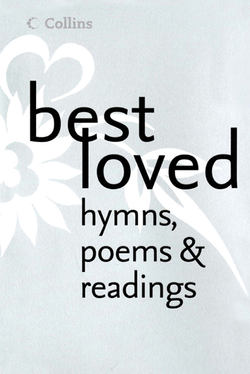Читать книгу Best Loved Hymns and Readings - Martin Manser - Страница 7
Adonais
ОглавлениеPercy Bysshe Shelley’s lament for fellow-poet John Keats ranks among his most celebrated poetic works. Written in 1821 in response to the news of Keats’s premature death from consumption in Rome, it is often quoted in part or in full at funerals (the extracts below comprise the more famous passages).
Many have commented upon the melancholy prescience of the final stanza in which Shelley describes how his own spirit is ‘driven far from the shore’: the following year he was himself drowned in a sudden storm while sailing in the bay of Lerici.
Peace, peace! he is not dead, he doth not sleep;
He hath awakened from the dream of life.
‘Tis we, who lost in stormy visions, keep
With phantoms an unprofitable strife,
And in mad trance, strike with out spirit’s knife
Invulnerable nothings. We decay
Like corpses in a charnel; fear and grief
Convulse us and consume day by day,
And cold hopes swarm like worms within our living clay.
He has outsoared the shadow of our night;
Envy and calumny and hate and pain,
And that unrest which men miscall delight,
Can touch him not and torture not again;
From the contagion of the world’s slow stain
He is secure, and now can never mourn
A heart grown cold, a head grown grey in vain;
Nor, when the spirit’s self has ceased to burn,
With sparkles ashes load an unlamented urn.
He is made one with Nature; there is heard
His voice in all her music, from the moan
Of thunder to the song of night’s sweet bird;
He is a presence to be felt and known
In darkness and in light, from herb and stone,
Spreading itself where’er that Power may move
Which has withdrawn his being to its own;
Which wields the world with never-wearied love,
Sustains it from beneath, and kindles it above.
He is a portion of the loveliness
Which once he made more lovely: he doth bear
His part, while the one Spirit’s plastic stress
Sweeps through the dull, dense world, compelling there
All new successions to the forms they wear,
Torturing th’ unwilling dross that checks its flight
To its own likeness, as each mass may bear,
And bursting in its beauty and its might
From trees and beasts and men into the Heaven’s light.
The One remains, the many change and pass;
Heaven’s light for ever shines, Earth’s shadows fly;
Life, like a dome of many-coloured glass,
Stains the white radiance of Eternity,
Until Death tramples it to fragments. Die,
If thou wouldst be with that which thou dost seek!
Follow where all is fled! Rome’s azure sky,
Flowers, ruins, statues, music, words, are weak
The glory they transfuse with fitting truth to speak.
That Light whose smile kindles the Universe,
That Beauty in which all things work and move,
That Benediction which the eclipsing Curse
Of birth can quench not, that sustaining Love
Which, through the web of being blindly wove
By man and beast and earth and air and sea,
Burns bright or dim, as each are mirrors of
The fire for which all thirst, now beams on me,
Consuming the last clouds of cold mortality.
The breath whose might I have invoked in song
Descends on me; my spirit’s bark is driven
Far from the shore, far from the trembling throng
Whose sails were never to the tempest given;
The massy earth and sphered skies are riven!
I am borne darkly, fearfully, afar;
Whilst, burning through the inmost veil of Heaven,
The soul of Adonais, like a star,
Beacons from the abode where the Eternal are.
Percy Bysshe Shelley (1792-1822)
